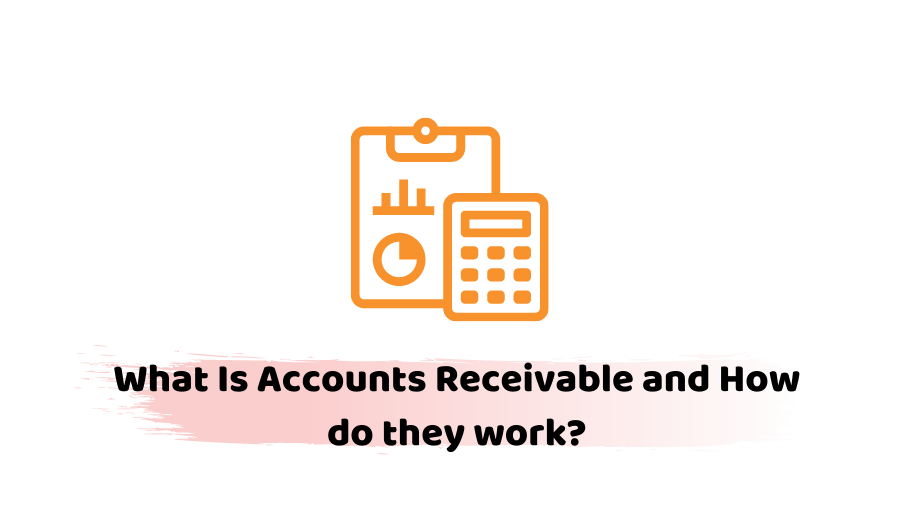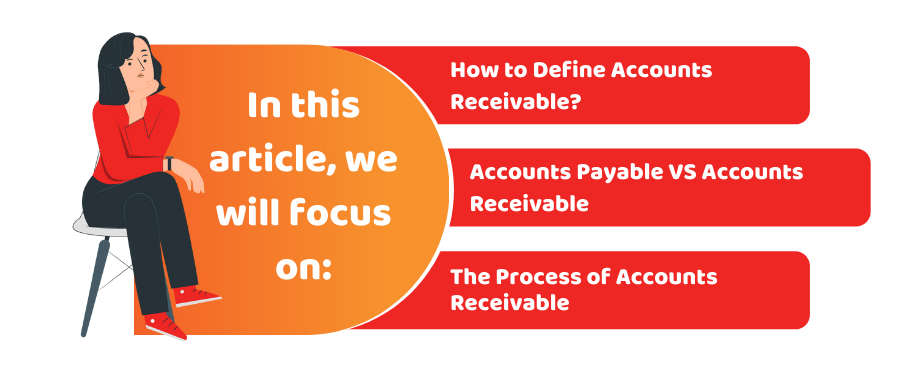Several businesses introduce offers like buy now pay later or some other attractive services are performed for the customers to retain them. At the time of bookkeeping, such details are considered as accounts receivable. In simple words, we can say that it is the money that the customer owes you. It is important to keep a track of accounts as it is helpful to be organised.
This makes the records manageable and easy to understand what amount is owed to you by the customers. Additionally, it helps further to sort out non-payers and as well as late payers. Before we delve deep into the discussion of how accounts receivable work, it is important to know what will this article unfold further for your understanding? The salient features are listed below for you.
- How to Define Accounts Receivable?
- Accounts Payable VS Accounts Receivable
- The Process of Accounts Receivable
Interested in ACCOTAX? Why not speak to one of our qualified accountants? Give us a call on 02034411258 or request a callback. We are available from 9:00 am – 05:30 pm Monday to Friday.
How to Define Accounts Receivable?
We often have heard that accounts receivable are also known as trade receivable. The products or services that you offered on credit for your customers. Unpaid invoice services are a way to get this money. This money is called accounts receivable because you are legally rightful to get this payment in the revenue accounts.
This might not appear in your income statement, however, the balance sheet has the record of accounts receivable. This will help to maintain the year-end financial report which will give a clear picture of the net worth of your business.
Looking for all-inclusive monthly packages? Let us take care of your affairs so that you can focus on your business.
Accounts Payable VS Accounts Receivable:
Unlike accounts receivable, customers owe you cash, accounts payable is when you owe a person cash, e.g. your suppliers. It’s referred to as accounts payable considering that it’s cash, you will get. Accounts payable is taken into consideration as a legal responsibility and credit, so it will move under short-time period liabilities to your balance sheet.
Accounts payable are the price range and generally associated with items or services used by the customers, which don’t bring interest. Without interest liabilities like financial loans etc do not come under this. Receivables consist of any debts on your company. However, inside this, there are sub-categories:
Trade receivables: These consist of all debts to you as an immediate result of the products or services you provided.
Non-Trade receivables: Sometimes, a person owes you cash that is not associated with your product or service. Tax refund comes under non-trade receivables.
Get an instant quote based on your requirements online in under 2 minutes, Sign up online or request a callback.
Accounts Receivable – The Process:
In case you are associated with a plumbing business, here is an example for a clear understanding.
On 1 April, you restore a boiler On the third day of April, the task is done and also you send an amount of detail to the purchaser, giving them 30 days to pay. From 1st April till the purchaser pays, you’ve got an account receivable. In your trial sheet, you’ll file this as a debit for your accounts receivable and credit for your cash account.
If you maintain accounts receivable, you’ll quickly understand the patterns of how your customers pay. Normally, you will figure out that there are customers who take more than a month to clear the payments. Knowing this may assist you in intend planning in a better manner to control your cash flow and function flexibly.
Can’t find what you are looking for? why not speak to one of our experts and see how we can help you are looking for.
The Bottom Line:
To sum up the discussion of accounts receivable, we can say that the amount customers owe your company for offered services and products is considered beneficial as well. However, if the record-keeping g is not professionally handled, this can damage the business growth and cause losses all at once. We hope this article helped to develop a better understanding.
Still, have a question? Get in touch with us.
Disclaimer: This article intends to provide general information based on accounts receivable.






















































